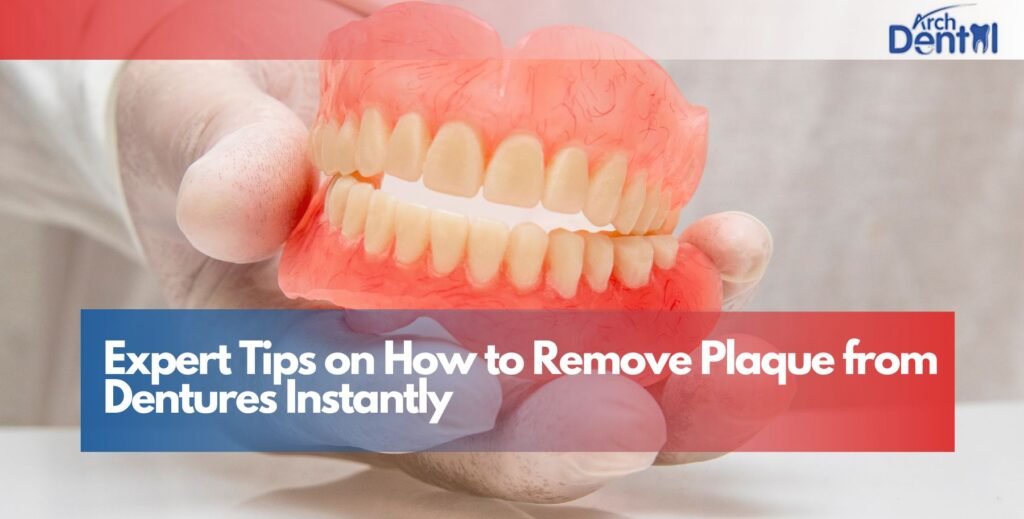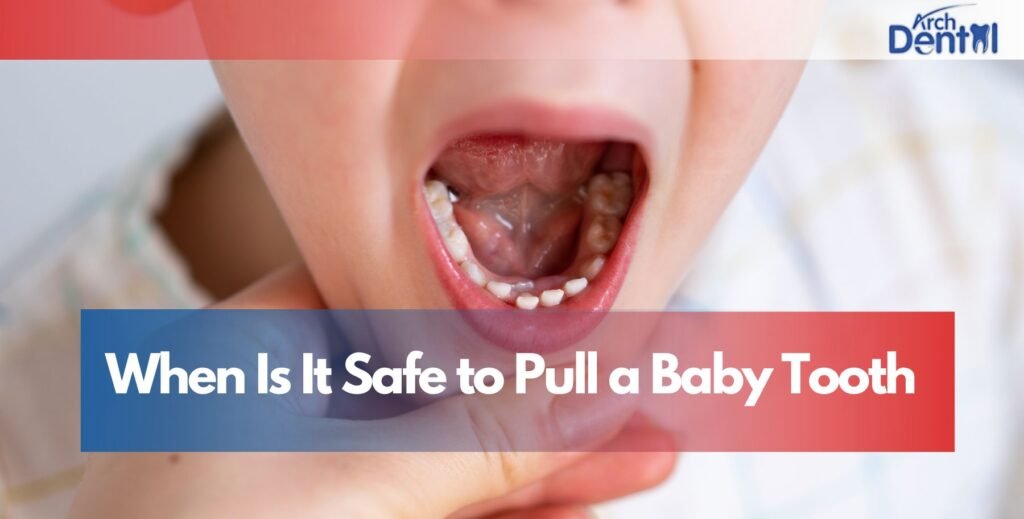A loose permanent tooth is not something you should ever ignore. Unlike baby teeth, adult teeth are meant to last a lifetime so when one starts moving, it’s a sign that something is wrong. Whether it’s caused by gum disease, trauma, bone loss, or bruxism (teeth grinding), taking fast action can help save your tooth and protect your long-term oral health.
This guide explains everything you need to know, including the causes, symptoms, treatment options, and the steps you should take right now to prevent further damage. If you’ve searched for quick help or typed “dentist near me” online, this article will give you the clarity and direction you need.
Understanding Loose Permanent Teeth
A permanent tooth becomes loose when the support structures around it bone, ligaments, or gums are weakened.
Why Loose Permanent Teeth Are Serious
- Permanent teeth do not grow back.
- The longer the tooth remains loose, the higher the risk of losing it.
- The cause is often a deeper dental issue that needs immediate care.
Signs Your Permanent Tooth Is Loose
- Movement when touched or when biting food
- Pain when chewing
- Gum swelling or redness
- Bleeding around the tooth
- A feeling of pressure or discomfort
If any of these symptoms appear, acting quickly can be the difference between saving and losing the tooth.
What Causes a Permanent Tooth to Become Loose?
Several conditions can weaken the structures that hold your tooth firmly in place. Understanding the cause guides the right treatment.
Gum Disease (Periodontal Disease)
The most common reason for loose adult teeth is untreated gum disease.
How Gum Disease Loosens Teeth
- Bacteria destroy gum tissue.
- Infection spreads to the bone supporting the tooth.
- Bone loss causes the tooth to shift or move.
Trauma or Injury
A fall, accident, sports injury, or even biting into something hard can loosen a tooth.
Types of Trauma
- Sudden impact
- Repeated micro-injuries (like grinding)
- Cracked roots
Bruxism (Teeth Grinding)
Grinding or clenching places pressure on your tooth’s ligament and bone.
Signs Grinding Is the Cause
- Jaw pain
- Headaches
- Flattened tooth surfaces
- Sensitivity
Advanced Decay
Severe cavities can damage the tooth structure and root, making it unstable.
Bone Loss
Osteoporosis, aging, or chronic infections can weaken the jawbone supporting the tooth.
Hormonal Changes
In teenagers, pregnancy, or menopause, hormonal shifts can temporarily cause gum looseness.
Orthodontic Movement
Teeth shift during braces or aligner treatment this movement is normal, but should never feel painful or overly loose.
Immediate Actions to Take If Your Permanent Tooth Is Loose
The steps you take right now can help save the tooth.
Avoid Touching or Wiggling the Tooth
Wiggling makes the situation worse by damaging the tissues holding the tooth in place.
Do Not Bite Hard Foods
Avoid:
- Nuts
- Hard bread
- Ice
- Raw vegetables
Keep the Area Clean
Use:
- Warm water
- Gentle brushing
- Antibacterial mouthwash
Use a Cold Compress
If swelling is present, place a cold pack outside the cheek for 10–15 minutes.
Avoid Smoking or Alcohol
They slow healing and worsen gum disease.
Call a Dentist Immediately
A loose adult tooth is a dental emergency. Do not wait for it to “fix itself.”
When to Visit the Dentist?
You should contact your dentist as soon as you notice a loose tooth. Delaying treatment can lead to irreversible bone loss or tooth loss.
Emergency Situations
Seek immediate care if:
- The tooth is very loose
- There is heavy bleeding
- You see pus or infection
- The tooth became loose after trauma
Conditions That Require Urgent Dental Care
- Sudden looseness without explanation
- Loose tooth with pain when chewing
- Gum recession exposing roots
- Teeth shifting or spreading apart
A dentist will perform X-rays and a clinical exam to identify the cause and start appropriate treatment.
Treatment Options for a Loose Permanent Tooth
The good news? Many loose permanent teeth can be saved if treated early. Your dentist may use one or more of the following treatments:
Deep Cleaning (Scaling and Root Planing)
- Removes plaque and tartar under the gums
- Stops active gum infection
- Allows gums to reattach to the tooth
Best For
Loose teeth caused by early-to-moderate periodontal disease.
Antibiotic Therapy
- Reduces gum infection and swelling
- Supports healing around the tooth
- Helps stabilize mobile teeth
Your dentist may prescribe oral antibiotics or apply antibiotic gel into deep pockets.
Splinting the Tooth
When a tooth is loose but still structurally healthy, splinting stabilizes it.
How Splinting Works
- The dentist attaches the loose tooth to neighboring teeth
- A thin wire or composite material is used
- It acts like a brace while the gums and ligaments heal
When Splinting Is Recommended
- Trauma
- Temporary gum weakness
- Early periodontal disease
Bite Adjustment (Occlusal Adjustment)
Teeth grinding or bite imbalance can damage teeth.
What the Dentist Does
- Smoothens small parts of enamel
- Balances the bite
- Reduces pressure on the loose tooth
Nightguards may also be recommended to protect from bruxism.
Bone Grafting
When bone loss caused the tooth to loosen, grafting may be needed.
Purpose of Bone Grafting
- Rebuilds lost bone
- Strengthens support around the tooth
- Helps prevent future mobility
Gum Grafting
If loose teeth are caused by gum recession, grafts can restore tissue and support.
Benefits
- Reduces sensitivity
- Protects roots
- Stabilizes teeth
Tooth Extraction (Last Resort)
If the tooth cannot be saved, the dentist may extract it to protect your overall oral health.
Replacement Options Include
- Implants
- Bridges
- Partial dentures
Early replacement prevents bone loss and shifting teeth.
How to Prevent Loose Teeth in the Future
Prevention is the key to preserving your smile for life.
Follow a Strong Oral Hygiene Routine
- Brush twice daily
- Floss once daily
- Use antibacterial mouthwash
Schedule Regular Dental Checkups
Professional cleanings prevent gum disease the leading cause of loose teeth.
Treat Bruxism Early
Nightguards prevent damage from clenching or grinding.
Maintain a Healthy Diet
Foods rich in calcium, vitamin D, and antioxidants improve gum and bone health.
Avoid Smoking
Smoking is one of the strongest risk factors for gum disease and tooth loss.
Protect Your Teeth During Sports
Wear mouthguards to prevent trauma-related looseness.
Prevent Loose Teeth and Maintain Your Smile
Your permanent teeth are meant to last a lifetime, and with the right habits, you can prevent looseness and protect your smile long-term.
Key Prevention Tips
- Treat gum disease early
- Address trauma immediately
- Don’t ignore early symptoms
- Maintain proper oral hygiene
- Visit your dentist regularly
If you ever feel that something is “off” with your tooth, trust your instincts. Early treatment always leads to better outcomes.
Conclusion
A loose permanent tooth is always a sign that you need professional care. Whether it’s caused by gum disease, trauma, bone loss, or grinding, acting quickly can help save your tooth and protect your long-term oral health. Avoid touching or wiggling it, follow careful home-care practices, and book an appointment as soon as possible.
With proper treatment and prevention, you can preserve your natural teeth and maintain a healthy, confident smile for years to come. When in doubt or if symptoms worsen, contact an experienced dentist near me for immediate guidance and care.
FAQs
Can a loose permanent tooth tighten back up?
Yes. If the looseness is due to early gum disease, minor trauma, or grinding, treatment such as deep cleaning, splinting, or bite adjustment can help the tooth firm up again.
How long does it take for a loose adult tooth to heal?
Healing time varies based on the cause. With treatment, gums can begin reattaching within 2–4 weeks. Severe cases may require months or additional procedures like bone grafts.
Is a loose tooth always a dental emergency?
If the looseness is sudden, painful, or due to trauma, it is considered an emergency. Gum-disease-related looseness also requires quick attention to prevent tooth loss.
What should I avoid if my tooth is loose?
Avoid hard or sticky foods, wiggling the tooth, smoking, alcohol, and biting with the affected tooth. These actions can worsen mobility.
Can grinding cause loose teeth?
Yes. Chronic grinding puts excessive pressure on the ligaments holding your teeth, leading to mobility. Nightguards help prevent further looseness.
Will a loose tooth fall out on its own?
An adult tooth should never fall out naturally. If your tooth is at risk of falling out, see a dentist immediately to explore treatment options.





